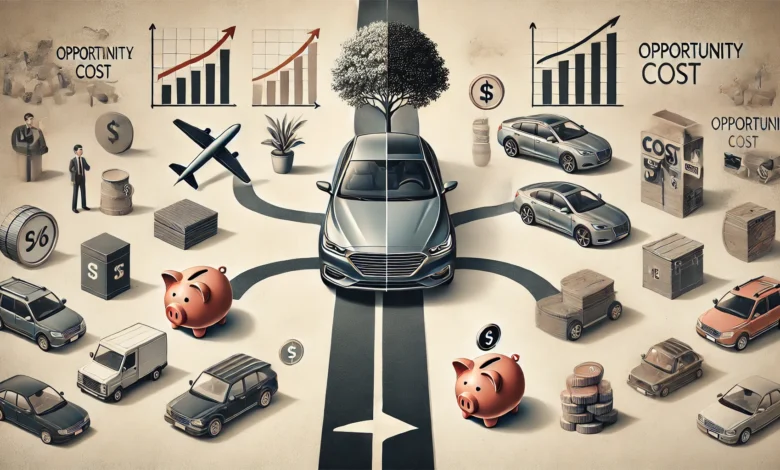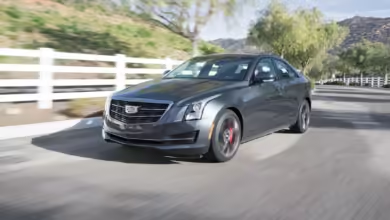What Is the Opportunity Cost of Buying a New Car? What You Might Be Giving Up

When making significant financial decisions, it’s important to consider not just the immediate costs but also the hidden impacts on your long-term financial situation. One of these considerations is the concept of opportunity cost, which is especially relevant when it comes to major purchases, such as buying a new car. But what does this ter
What Is the Opportunity Cost of Buying a New Car?
At its core, opportunity cost refers to what you give up when you make a choice. In the context of purchasing a new car, the opportunity cost is everything you could have done with that money instead. Whether it’s investing, saving, or spending on other experiences, buying a car is a decision that often comes with financial trade-offs.
Breaking Down the Costs of a New Car Purchase
What does buying a new car truly mean financially? The immediate thought might be the sticker price, but the real cost extends far beyond that. When you buy a new car, you face a wide array of expenses, including:
- Down payment and monthly payments: A significant upfront cost that can impact your savings.
- Interest on loans: If you’re financing your new car, you will likely pay interest over the term of the loan.
- Depreciation: A new car loses a considerable amount of value the moment it leaves the dealership. In the first year alone, a new vehicle can depreciate by as much as 20-30%.
- Insurance and taxes: Higher than for used cars, adding to your regular monthly costs.
Each of these expenses represents a trade-off between owning a new car and other potential uses of your money. For instance, instead of spending on a down payment and monthly installments, that same cash could be invested in stocks, used to pay off debt, or saved for a home.
Calculating the Financial Trade-offs
What is the opportunity cost of buying a new car in terms of financial growth? To put it simply, it’s the potential gains you could have achieved by using that money differently. Imagine if the $5,000 down payment and $400 monthly payments were instead invested in an index fund that earns 8% annually. Over five years, you could potentially accumulate over $30,000—a significant financial gain that’s missed when opting for a new car purchase.
But it doesn’t stop at investments. That money could also be used to pay off high-interest debt, like credit cards, which would save on interest payments and improve your financial standing. Or it could be saved for a home purchase, setting you up for long-term stability.
The opportunity cost isn’t just about the money spent; it’s also about the financial growth you’re giving up. This is why it’s crucial to evaluate your financial priorities and weigh the trade-offs before committing to a new car purchase.
Lifestyle Trade-offs
Beyond financial considerations, buying a new car can have lifestyle implications. How might buying a new car affect your lifestyle choices and opportunities? For example, the money spent on monthly car payments could instead be used for vacations, hobbies, education, or family experiences. By c
It’s also important to consider the emotional satisfaction tied to owning a new vehicle versus the potential stress that comes from financial strain. While a brand-new car may bring immediate pleasure, the long-term cost can limit your ability to pursue other opportunities.
Alternative Options to Buying a New Car
If the financial and lifestyle trade-offs seem significant, it’s worth exploring alternative options. Here are a few possibilities:
- Buying a used car: Opting for a reliable used car can save thousands in depreciation costs while still providing transportation. Used cars often have lower insurance and tax costs as well.
- Leasing a vehicle: Leasing can provide the experience of driving a newer car without the long-term financial commitment. However, it’s essential to weigh the lease payments and potential end-of-lease costs.
- Relying on public transportation or car-sharing services: If possible, consider going without a car entirely or using car-sharing services for occasional needs. This can free up your finances for other pursuits.
Each of these alternatives presents a different opportunity cost. When evaluating the benefits and drawbacks, consider your personal situation, financial goals, and lifestyle needs.
How to Make an Informed Decision
Before purchasing a new car, consider the following practical steps to make an informed choice:
- Create a comprehensive budget: Outline all associated costs of owning a new car, including the monthly payments, insurance, maintenance, and depreciation.
- Evaluate your long-term financial goals: Weigh the opportunity cost of buying a new car against your financial priorities. Are you planning to save for a house, invest, or focus on debt reduction?
- Assess the true value of the car to your life: Ask yourself whether the convenience, status, or comfort of a n buy female viagra online in the best USA pharmacy https://careprimeclinic.com/wp-content/uploads/2025/08/png/buy-female-viagra.html no prescription with fast delivery drugstoreew car outweighs other financial or lifestyle benefits.
These considerations will help you see the full picture of what is the opportunity cost of buying a new car, ensuring that your decision aligns with your broader financial goals and lifestyle aspirations.
Conclusion: Tips for Preventing Financial Pitfalls
In summary, the opportunity cost of buying a new car goes beyond the sticker price. It affects your potential for financial growth, lifestyle choices, and overall financial well-being. To prevent similar financial pitfalls in the future:
- Prioritize financial flexibility: Whenever considering a large purchase, ensure it fits comfortably within your budget and doesn’t restrict your ability to save or invest.
- Weigh all alternatives: Explore used car options, leasing, or other transportation means to determine the best fit for your s best online pharmacy with fast delivery buy doxt sl online with the lowest prices today in the USAituation.
- Align your purchases with long-term goals: Before buying a new car or any big-ticket item, consider how it aligns with your broader life and financial objectives.
By keeping these tips in mind, you’ll be better equipped to make a choice that maximizes your financial well-being and helps you achieve your long-term goals. Remember, the key is not just looking at the costs but understanding what you’re giving up—and making sure it’s worth it.










